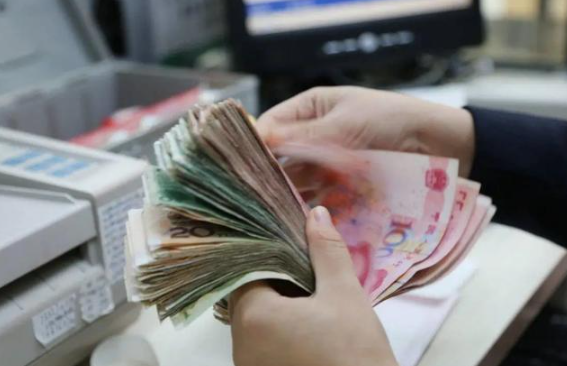When operating your companies in China, how to repatriate the profits to overseas stakeholders and interest parties is important but complex. This blog aims to demystify the process of profit repatriation, offering insights into effective strategies that not only facilitate the smooth flow of funds across borders but also optimize tax obligations and enhance capital efficiency.
As the global economy continues to develop, an increasing number of foreign investment enterprises are entering the Chinese market in search of business opportunities and growth. China's vast market and improving investment environment have attracted numerous foreign investors. Leveraging China's relatively low labor costs, extensive talent pool, and well-developed logistics and transportation, foreign investors have been able to advance their businesses and successfully profit in China. This brings up an important question: How can I repatriate the profits I've earned in China to my stakeholders abroad?
For foreign investment enterprises, repatriating profits from China safely and efficiently involves a multifaceted consideration process, including tax planning, compliance checks, and foreign exchange management. If you repatriate your earnings from China inappropriately, you could encounter a myriad of issues related to foreign exchange controls and taxation. When the amount is significant, turning these profits into repatriated funds becomes a challenge.
In this blog, Hongda will outline several methods for you to repatriate your profits from China. These strategies aim to minimize taxation while avoiding potential risks associated with tax and foreign exchange policies. It's important to note, however, that these strategies may still be subject to certain limitations. We strongly recommend consulting with Hongda before taking actions to help you navigate any potential difficulties and risks.
When you live and work in China, there are some important matters and deadlines you need to keep in mind. Missing these deadlines could cause unnecessary trouble for your company or yourself, possibly affecting your social credit and leading to fines or other penalties. In this blog post, Hongda will provide detailed information on the key matters you need to remember! We will list the most important annually matters which need to be planned and handled properly in the timely manner so that you have a clear idea about when you should get ready for what’s coming next!
Strategy One: Dividend Distribution
Dividend distribution refers to the process by which a company allocates a portion of its profits to its shareholders in the form of cash or stock. Dividends are typically distributed according to the proportion of shares held, meaning shareholders with more shares receive a larger dividend. This is the most common and direct method for foreign investment enterprises to repatriate profits from China to overseas stakeholders. Through cash dividends, the company pays a part of its profits in cash to shareholders, thereby achieving the goal of transferring profits earned in China to overseas shareholders.
However, under current regulations, China has stringent rules regarding dividend distribution by foreign investment enterprises. If your company wishes to distribute profits in this manner, you will need to go through the following steps:
- Profit Confirmation: The first step is to complete the annual audit and tax declaration as only profits verified through an audit can be allocated as dividends. Additionally, it's important to consider whether the company's registered capital has been fully paid up.
- Appropriation to Surplus Reserves: Before deciding on dividend distribution, a certain percentage of profits should be transferred to surplus reserves to support the company in case of future losses or expansion investments.
- Shareholders' Meeting Resolution: The company needs to convene a shareholders' meeting where the shareholders decide on the profit distribution plan based on the company's financial status.
- Income Tax Payment: In China, dividend income is usually subject to a 20% income tax. If the company's shareholders are foreign natural persons, foreign individual shareholders can enjoy an exemption from dividend income tax until 2027.
- Foreign Exchange Management: If the shareholder is a non-resident company, the remittance of dividends must comply with China's foreign exchange regulations by submitting a foreign exchange purchase application through a bank, providing necessary documents such as shareholders' resolution and tax proof, to process the dividend remittance.

If you wish to understand how individuals can transfer money earned in China for use abroad, you may refer to our blog: "Guidance on Transferring Money In and Out in China".
Strategy Two: Paying Loan Interests
Utilizing interest on loans as a means to repatriate profits is a relatively common financial management and tax planning strategy in international business practices. This approach involves cross-border loan arrangements between enterprises, where a foreign-invested enterprise in China (the borrower) borrows from its overseas affiliate, such as the parent company abroad (the lender), and then transfers profits out by paying interest.
Initially, a formal loan agreement needs to be established between the foreign-invested enterprise and its overseas parent company or affiliated enterprises. This agreement should specify the loan's terms, including the amount, interest rate, repayment schedule, and methods of payment. To ensure the transaction's commercial and tax reasonableness, the interest rate should be close to the market rate. This is to prevent tax authorities from viewing it as tax evasion, especially when the interest rate is significantly higher or lower than market levels. Additionally, in China, cross-border loans and interest payments must comply with the State Administration of Foreign Exchange (SAFE) regulations. Enterprises are required to submit the loan agreement to SAFE before paying the loan, complete the necessary cross-border loan registration, and obtain approval before making interest payments.
A key advantage of this method is that it allows businesses to reduce their tax liability by deducting interest expenses as operational costs when calculating corporate income tax, thus achieving tax efficiency. However, to prevent the misuse of loan arrangements for profit shifting, many countries have set limitations. Tax authorities worldwide have established a series of anti-avoidance rules, especially targeting transfer pricing and thin capitalization (where a company is financed excessively through debt rather than equity). These regulations may limit the efficiency and legality of using loan interest as a means of repatriating profits.
Strategy Three: Royalty Fees
For businesses that possess numerous patents, trademarks, design rights, or franchise rights, collecting royalty fees for the authorized use of these intellectual properties can serve as a means for foreign-invested enterprises in China to repatriate profits. Paying for the use of these rights can also be treated as an operational cost for tax deduction purposes, thereby reducing the corporate income tax liability within China. This practice not only legally facilitates the repatriation of profits from China but can also optimize tax liabilities to some extent.
Similar to the method of repatriating profits through loan interest, the process of repatriating profits through royalty fees follows comparable steps, including signing agreements, conducting declarations with the State Administration of Foreign Exchange (SAFE), and handling tax matters. Foreign-invested enterprises need to sign a royalty agreement with their overseas affiliated enterprises, specifying the scope of the rights, the calculation method for the usage fees, payment conditions, etc. To ensure commercial reasonableness and market fairness, the amount of the royalty fee should be based on fair market value and match the actual value of the services, technology, or brand. The terms should be set close to those with independent third parties to demonstrate the fairness of the transaction. Otherwise, excessively high or low fees may attract the attention of tax authorities and market regulators. Given China's foreign exchange control regulations require the declaration and approval of cross-border transactions, enterprises might need to submit detailed information and contracts of the relevant transactions to SAFE or its authorized banks to obtain approval for foreign exchange payments. When making payments, according to Chinese law, overseas companies receiving royalty fees are subject to income tax, so professional tax assistance is still needed to complete this step.
The most crucial step in implementing this method is the confirmation and signing of the royalty agreement. This not only protects your franchising operations in China but is also a focus of China's foreign exchange control review. Since the submission of the agreement or contract to the foreign exchange authority is necessary for remitting royalty fees abroad, your contract must comply with national regulations to avoid the risk of your filing being rejected. Please contact the Hongda team to ensure the specified payment in the agreement is reasonable.
Strategy Four: Service Fees
The method of paying service fees to overseas companies involves foreign businesses in China seeking and receiving services or support from overseas enterprises. This can include payments for various services such as technical support, management consulting, marketing promotion, and more, with the goal of repatriating operational profits earned domestically to related companies abroad. Compared to paying overseas loan interest and royalty fees, the method of paying overseas service fees covers a wider range of industries with fewer restrictions, making it a more flexible option for profit repatriation. Service fees can also be deducted before taxes, thereby reducing the corporate income tax within China. Furthermore, if the services you seek are entirely performed outside of China, you may not be required to pay withholding corporate income tax.
When establishing a service contract with an overseas service provider, the services involved should be based on genuine commercial needs, and the services stipulated in the contract should be actually provided. This can include management consulting, technical support, brand usage, etc. If the sole purpose of establishing the contract and making payments is to transfer money abroad, it could negatively impact your operations by attracting the attention from regulatory departments. The pricing of the service fees should adhere to the arm's length principle, meaning the prices should be similar to those of transactions under comparable conditions with independent third parties. Service fees that are excessively high or low could be seen as means of profit manipulation. Additionally, due to China's foreign exchange controls, foreign-invested enterprises must complete foreign exchange registration before remitting funds, submitting relevant commercial contracts, invoices, and other documentary evidence to enable banks and the foreign exchange authority to verify the authenticity of the transactions during remittance processing.
Special Notes!
These methods of transferring money may seem straightforward, but there are many factors and details to consider in practice. It's important to pay special attention to the following issues:
Tax Compliance: The method of profit repatriation must comply with Chinese tax laws and regulations. Different methods of profit distribution may be treated differently for tax purposes, and you may need to pay various types of taxes depending on the chosen method. For instance, dividend distributions require the payment of corporate income tax and dividend tax, interest payments are subject to interest income tax, and royalty fees and service fees also entail corresponding taxes. Therefore, understanding and adhering to relevant tax regulations is essential to ensure the compliance of profit repatriation. Hongda's team of tax professionals will help you navigate these tax issues and arrange for the payment of relevant taxes.
- Tax Optimization Strategies: Although paying taxes is inevitable regardless of the method used, you can still use sound tax strategies to optimize the way profits are distributed and reduce the company's tax burden. For example, you could choose the most favorable dividend distribution ratio based on the actual situation of the company and its shareholders, utilizing tax incentives to reduce the dividend tax rate. For royalty and service fees, pricing them reasonably and ensuring compliance with regulations can prevent accusations of tax evasion while minimizing the tax liability.
- Tax Declaration and Reporting: Before repatriating profits, it's necessary to carry out tax declarations and reporting as required. This includes submitting relevant forms and reports to the tax authorities, declaring and paying related taxes to ensure the transparency and legality of the profit distribution process. Hongda's Accounting and yearly maintenance services will prepare financial reports, tax reports, and audit reports, among other documents, helping you easily address compliance issues.
- Foreign Exchange Control: China has foreign exchange control regulations, and all your remittances abroad must comply with these rules and requirements. According to the State Administration of Foreign Exchange (SAFE), you may need to provide necessary documents during the process, following the requirements of relevant departments, to prove the rationality, necessity, and compliance of the procedure.
The corporate audit report is a document produced by accounting firms based on their audit work and related financial statements. It typically includes an independent third-party opinion on the financial condition and operational results of the company. Submitting financial reports that have been audited by an independent third party to relevant regulatory authorities or shareholders not only helps the company verify the accuracy and completeness of its financial situation but also serves as an important means of assessing the company's compliance with financial and tax regulations.
Conclusion
For foreign-invested enterprises, repatriating profits from China to overseas involves a multifaceted consideration process that includes tax planning, compliance checks, and foreign exchange management. This blog post has introduced four methods—dividend distribution, interest, royalty fees, and service fees—to help enterprises not only facilitate cross-border capital flows but also optimize tax costs and improve the efficiency of fund utilization to some extent. However, it is important to note that with changes in tax policies both in China and globally and the intensification of international efforts against tax avoidance, foreign-invested enterprises must ensure a high degree of compliance and transparency when implementing profit repatriation strategies.
In conclusion, when considering repatriating profits from China, foreign-invested enterprises should thoroughly evaluate the applicability and risks of different methods, while also seeking advice from professional advisors to ensure compliance with Chinese laws and regulations, as well as efficient and risk-minimized capital utilization. Hongda will provide customized tax strategies and advice based on the specific circumstances of your enterprise, help arrange profit distribution in a reasonable manner, and coordinate the operational processes with banks according to foreign exchange regulations, to ensure smooth profit repatriation. We welcome you to schedule a free consultation with our advisors to discuss your specific situation, and we will provide you with solutions tailored to your needs!






